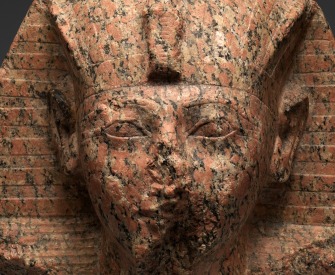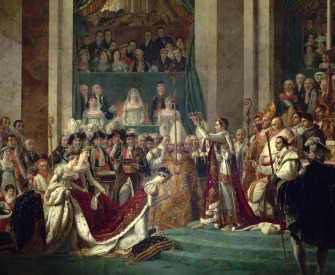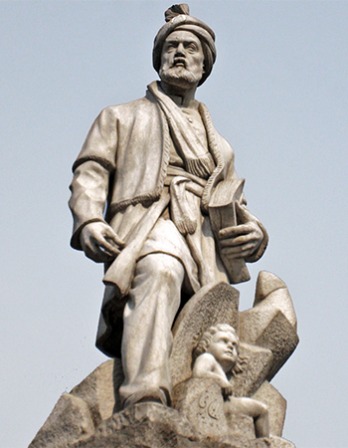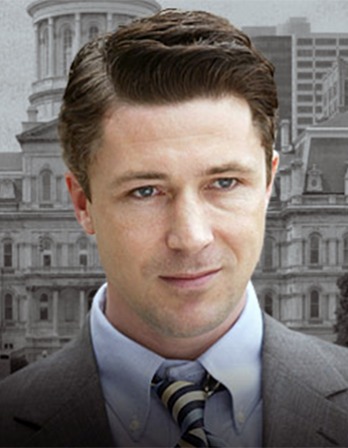All of life is a foreign country.
—Jack Kerouac, 1949Surrounded and Besieged
The persecution of English Jews.
Of the Jews of York the foremost were Benedict and Joce, men of great riches and great usurers. They had built in the middle of the city at very great expense large houses, like royal palaces, and there they dwelled like two princes of their own people and tyrants of the Christians, behaving with almost royal state and pomp and exercising harsh tyranny against those whom they oppressed with their usuries.
And when they were at London at the solemnity of the anointing of the king, Benedict, by the judgment of God, met with a most wretched end. But Joce, escaping with difficulty on that occasion, returned to York, and as the king after the London riot issued a decree for the protection of the Jews, he, together with the rest of the Jews throughout England, continued to act confidently according to their old ways. But when the king had established himself across the sea many of the province of York plotted against the Jews, not being able to suffer their opulence when they themselves were in need, and without any scruple of Christian conscience thirsting for the blood of infidels from greed for booty. The leaders of this daring plan were some of the nobles indebted to the impious usurers in large sums, some of whom having given up their estates to them for the money they had received, were now oppressed by great want.
One stormy night no small part of the city caught on fire either by chance or, as is believed, by arson perpetrated by the conspirators, so that the citizens were occupied with their own houses in fear of the fire spreading. There was nothing, therefore, in the way of the robbers, and an armed band of the conspirators, with great violence and tools prepared for the purpose, burst into the house of the before-mentioned Benedict, who had miserably died at London. There his widow and children with many others dwelled; all of these who were in it were slain and the roof put on fire. And while the fire gloomily increased in strength, the robbers seized their booty and left the burning house, and by help of the darkness retired unobserved and heavy laden. The Jews, and especially their leader Joce, in consternation at this misdeed having begged the assistance of the warden of the royal castle, carried into it huge weights of their money equal to royal treasures, and removed with their wives and children into the castle.
At length, those who had personally held the Jews in hatred, no longer having any fear of public rigor, began to rage against them openly and with abundant license. No longer content with their substance, they gave to all found outside the castle the option of sacred baptism or the extreme penalty. Thereupon some were baptized and feignedly joined Christianity to escape death. But those who refused to accept the sacrament of life, even as a matter of pretense, were butchered without mercy. While all this was happening the multitude who had escaped into the castle seemed to be in safety. But the warden of the castle having gone out on some business, when he wished to return was not readmitted by the trembling multitude, uncertain in whom to trust and fearing that perchance his fidelity to them was tottering, and that being bribed he was about to give up to their enemies those whom he should protect. But he immediately went to the sheriff of the county who happened to be at York with a large body of the county soldiers, and complained to him that the Jews had cheated him out of the castle entrusted to him. The sheriff became indignant and raged against the Jews, and ordered the people to be summoned and the castle to be besieged. The irrevocable word went forth, the zeal of the Christian folk was inflamed, immense masses of armed men both from the town and the country were clustered around the citadel. Then the sheriff struck with regret at his order tried in vain to recall it and wished to prohibit the siege of the castle. But he could by no influence of reason or authority keep back their inflamed minds from carrying out what they had begun.
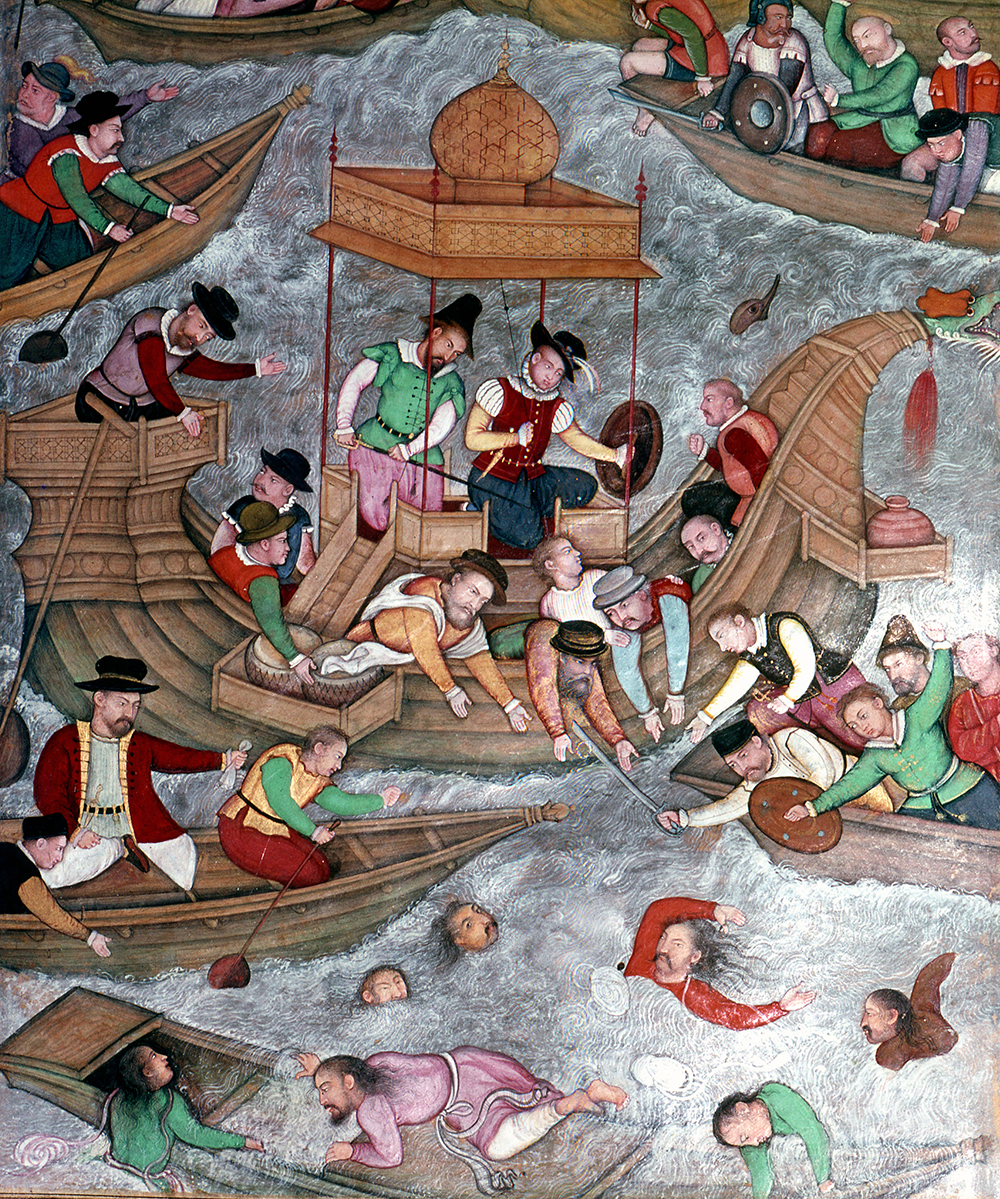
Portuguese mercenaries drowning Sultan Bahadur and Rumi Khan, miniature from the Book of Akbar, by Abu al-Fadl, c. 1603. Department of Oriental Manuscripts, British Museum, London.
Equal zeal inflamed all, for they thought they would be doing a great act of devotion to God, while with blinded minds they shut their eyes to that saying of David: “God shows to me above my enemies; do not slay them, never forget my people.” Indeed with the same reason of Christian utility the perfidious Jew, the crucifier of our Lord Christ, is allowed to live among Christians as the form of the Lord’s cross is painted in the church of Christ, viz., for the continual and most helpful remembrance by all of the faithful of our Lord’s Passion, and thus the Jews ought to live among Christians for our use, but serve as for their own iniquity. But the Jews in England under Henry II were by an absurd arrangement happy and renowned far more than the Christians, and swelling very impudently against Christ, owing to their good fortune did much injury to the Christians.
Accordingly, the Jews were besieged in the royal tower, and the besieged lacked a sufficient supply of provisions, and would have been quickly starved out by hunger even if no one attacked them from without. But they did not have either a sufficient stock of arms for their own safety or for repelling the enemy. The tower was stoutly beseiged for several days.
When the machines that had been prepared for the purpose were thus moved into position, the taking of the tower became certain, and it was no longer doubtful that the fatal hour was nearing for the besieged. On the following night the besiegers were quiet, rejoicing in the certainty of their approaching victory, but the Jews were brave, and braced up by their very despair, had little rest, discussing what they should do in such an extremity. Now there was there a certain old man, a most famous doctor of the Law, who, it is said, had come from parts beyond the sea to teach the English Jews. He was honored by all and was obeyed by all as if he had been one of the prophets. When, therefore, he was asked his advice on that occasion, he replied, “God, to whom none shall say, ‘Why dost thou so?’ orders us to die now for the Law. And behold our death is at the door. Unless, perchance, which God forbid, you think of deserting the sacred Law for this brief space of life, and choose a fate harder than any death to honest and manly minds, namely, to live as apostates at the mercy of impious enemies in the deepest dishonor. Since then we ought to prefer a most glorious death to a very dishonest life, we ought to select the easiest and most honorable form of death. For if we fall into the hands of the enemy we shall die at their will and amid their jeers. And so since the life which the Creator gave us, he now demands back from us, let us willingly and devoutly render it up to him with our own hands and let us not await the help of hostile cruelty by giving up what he demands.” When he had said this very many of them embraced his fatal advice, but to many his word seemed a hard one.
Very many of them withdrew, preferring rather to try the clemency of their enemies than perish in this way with their friends. Soon at the advice of this mad elder, fire consumed their richest garments in the sight of all lest the enemy should be made rich by their wealth; they placed in the fire their most precious vessels and everything they could; by their dainty envy they condemned these things to a disgraceful resting place. When this was done, they prepared their throats for the sacrifice. At the order of that inveterate author of wicked days that those men whose courage was most steady should take the life of their wives and pledges, the famous Joce cut the throat of Anna, his dear wife, with a sharp knife, and did not spare his own sons. And when this had been done by the other men, that wretched elder cut Joce’s throat so that he might be more honored than the rest. All of them thus slain together with the author of their error, the fire which had been lit by them before their death, as we have mentioned, began to burst out in the interior of the tower. Those who had chosen to live resisted as much as they could the fire lit by their own friends lest they too should die with them, though unwillingly, betaking themselves to the extremity of the tower where they were least burned. At daybreak, when the crowd of people collected to storm the castle, those wretched remnants of the Jews standing at the gates declared with tearful voice the slaughter of their people during the night and, throwing down from their walls their dead bodies as an ocular proof of so great sacrifice, they called out, “Behold the bodies of wretched men who were guilty of their own death with wicked fury and when we refused to do the same but preferred to try Christian clemency, they set fire to the interior of this tower so that they might burn us alive. But God has preserved us both from the madness of our brethren and the danger of the fire so that at last we may be at one with you in religion. For our trouble giving us sense, we recognize the Christian truth and desire its charity being prepared to be laved by the sacred baptism, as you are accustomed to demand and, giving up our ancient rites, to be united to the Christian church. Receive us as brothers instead of enemies, and let us live with you in the faith and peace of Christ.” When they said this with tears many of our men were horrified at the madness of the dead and pitied the survivors. But the leaders of the conspiracy were moved by no pity for these wretches. Speaking fair words to them deceitfully, and promising them the wished-for grace with testimony of the faith so that they should not fear to come out, as soon as they did so they seized them as enemies, and though they demanded the baptism of Christ, those cruel butchers destroyed them.
The look of things in the city was at that time horrid and nauseous and around the citadel were lying scattered the corpses of so many unfortunates still unburied. But when the slaughter was over, the conspirators immediately went to the cathedral and caused the terrified guardians, with violent threats, to hand over the records of the debts placed there, by which the Christians were oppressed by the royal Jewish usurers, and thereupon destroyed these records of profane avarice in the middle of the church with the sacred fires to release both themselves and many others.
About This Text
William of Newburgh, from History of English Affairs. Tensions between Christians and Jews in England came to a head in 1189, when a group of Jews was refused admittance to the coronation of King Richard I. In a riot outside the ceremony thirty Jews were killed. Answering Pope Gregory VIII’s call for a third Crusade, Richard I departed and in his absence other massacres followed, the worst of which took place at York. The Jews were expelled from the country in 1290; no significant population of Jews would live in England until after 1655.
